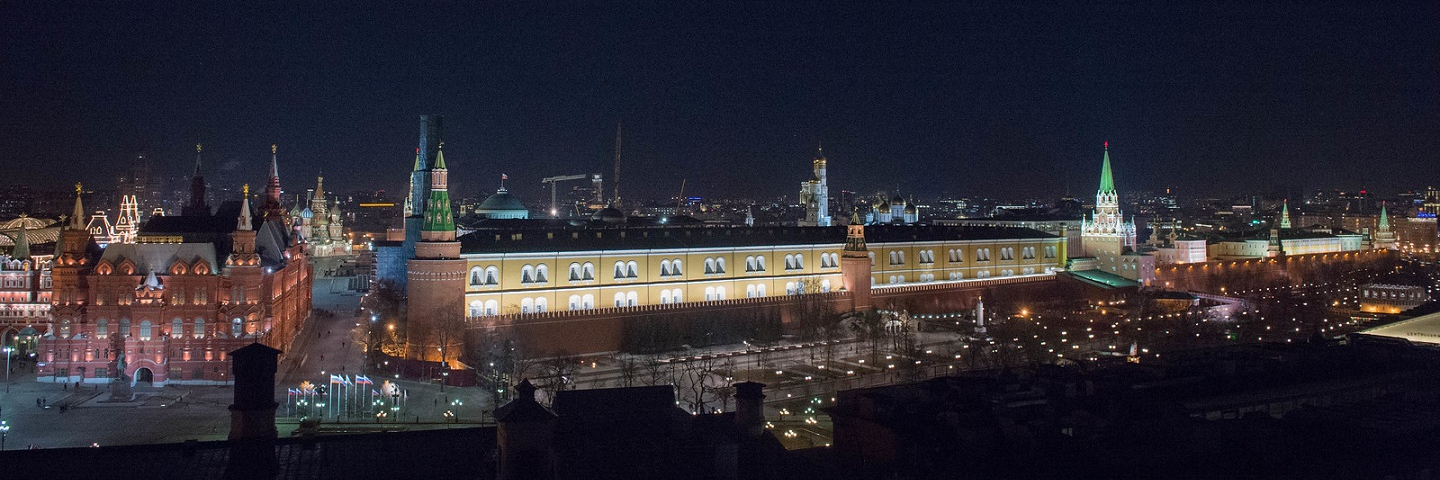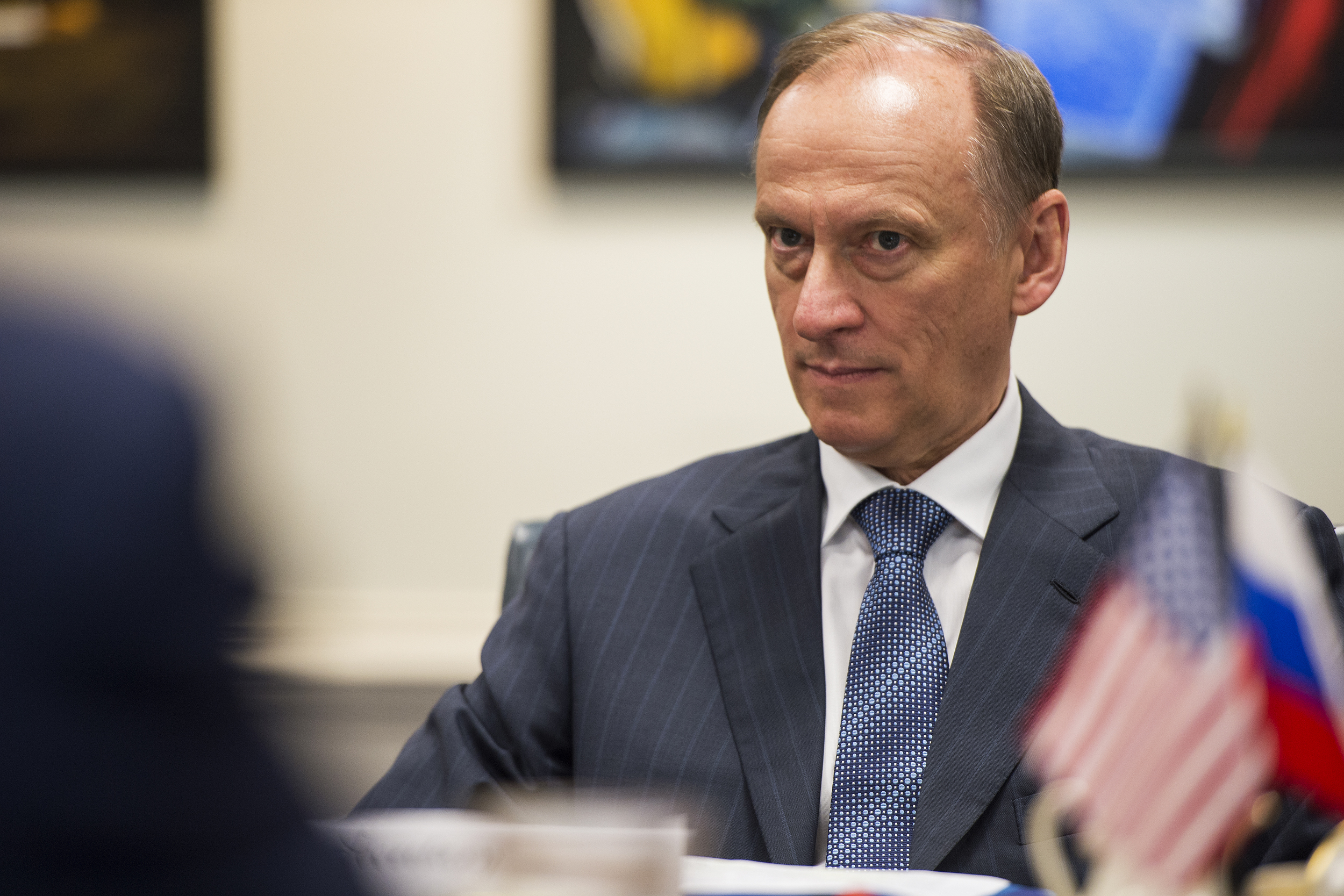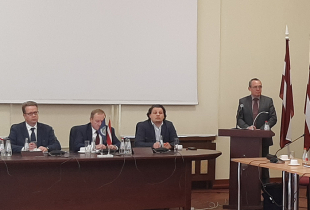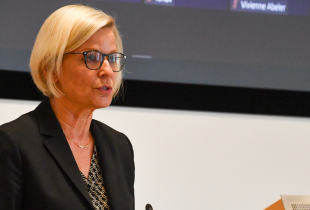
The Intelligence and Security Services and Strategic Decision-Making
Executive Summary
- The intelligence and security communities have a disproportionate influence in Vladimir Putin’s Russia, exerted not only through their institutional roles within the system but also through their social and political authority.
- They share certain common assumptions about the world—notably that it is essentially hostile and dominated by zero-sum competition—but also are deeply divided along generational, factional, personal, and ideological lines.
- In broad terms, the strength of the agencies contributes to several key policy tendencies: a combination of strategic caution and tactical risk-taking, multitrack approaches driven by individual and institutional initiative, and an essentially isolated and covert decision-making mechanism that makes it difficult for alternative views to be considered.
The intelligence and security communities—primarily the Federal Security Service (FSB), Foreign Intelligence Service (SVR), military intelligence (still generally known as the GRU1), and Federal Protection Service (FSO2)—are particularly powerful structures in Russia, with especially strong lines into the Kremlin and, thus, apparently, the capacity to influence policy and the codes and culture behind it.
Their Interests
The services do not make up a single, homogenous bloc (one ought to mistrust easy references to the siloviki, or “men of force,” as though they did form one unit or culture) and even individual services are divided along generational, factional, personal, and ideological lines.3 Nonetheless, as a whole one can identify a range of interests.
Competitors
The deliberate decision both to allow service responsibilities to overlap and to encourage competition out of a spirit of “divide and rule” means that there is an especially sharp rivalry between services and also often between divisions and individuals within services. The competition for presidential approval is especially strong and has led to a perverse competition to tell the boss what they think he wants to hear, not what he needs to hear.
Patriots
That said, this competition should not be overstated, especially now that the agencies (and the Kremlin) essentially consider themselves to be at war with the West. It is politically dangerous to appear to be jeopardizing the wider cause simply for factional interest. It is also the case that in the main security and intelligence personnel genuinely consider themselves to be patriots; the other services are merely competitors, not the enemy.
Kleptocrats
Abstract loyalties often take second place in the day-to-day to personal interests, though, as an under-regulated and over-powered cohort of security and intelligence personnel seek ways to enrich themselves, whether FSB officers selling information or helping prosecute feuds (for example, these interests were evident in the arrests of minister of economic development Alexei Ulyukaev in November 2016 and American entrepreneur Michael Calvey in February 2019) or SVR staff using diplomatic channels for smuggling.4 This also means that elements of the agencies may be suborned, even if only temporarily, by economic interests to advance their own cases and causes. The SVR, for example, appears to have taken an especially strong line in support of Nicolas Maduro’s regime in Venezuela and there is speculation that this support reflects the influence of Igor Sechin, head of the Rosneft oil conglomerate.5
New Nobility
Nikolai Patrushev’s (in)famous description of the members of the intelligence and security community as a “new nobility” was self-serving and flattering, but there is also a degree of esprit de corps within each service and the sector as a whole.6 Often this is pathological and problematic, leading to mutual cover-ups and criminality, but it also has a positive dimension, with elements genuinely seeking to do a good job and help build a better Russia, however they choose to define that.
The intelligence and security communities are strategically unified and tactically divided. They tend to share a broad sense of the world and how it works—and its presumed hostility to Russia—and of the ways Russia can and should respond to it. Much of the time, though, they are too divided and consumed by immediate struggles to generate a deeper consensus.

Institutional Code and Culture
The following are some of the underlying strategic assumptions generally held by the services, which they seek to see fed into national policy, beyond their own sectoral self-interest:
- “War is eternal.” The services inherited the ethos of the Committee for State Security (KGB), which is essentially that they are always on a wartime footing.
- “Active measures are a central strategic asset.” The corollary of the above is that active measures—covert political operations—are not an exceptional response, as they tend to be considered in the West (at least in peacetime), but a perfectly normal and appropriate instrument of statecraft.
- “As abroad, so at home.” All foreign policy is driven by domestic political concerns, and this maxim also extends to a hyperconsciousness bordering on paranoia at the extent to which unrest actually reflects external influence. Russian claims that the 2013–2014 Euromaidan protests in Ukraine or the 2011–2012 Bolotnaya protests in Russia were instigated, encouraged, and manipulated by the West—particularly the United States—are not simply convenient self-justifications, but reflect a genuine belief among many within the intelligence community (and the Kremlin as a whole).
- “We are not unique.” The services assume the West and other powers share the same beliefs as the Russians in regard to the essentially zero-sum nature of the world, even if Western powers mask such beliefs with hypocritical rhetoric or perhaps need to turn to active measures less often because they can rely on economic strength and other forms of leverage instead. The basic assumption is that the Motherland must cope with a covert political campaign from abroad at least as formidable as anything her sons could come up with.
The result of these assumptions is an ideological alliance of sorts with other interests seeking to play up a foreign threat and the need to respond in a robust way, from the ministry of defense to the nationalists, even if such alliances and the coherence of the services break down over questions of tactics and resource allocation.
Traction on Policy-Making
There is a widespread sense in Moscow among other agencies, such as the ministry of foreign affairs and even the ministry of defense, that the intelligence and security agencies wield disproportionate power in today’s Russia. This power is exerted through the following channels:
- Feeding information, analysis, and policy prescriptions directly to the Kremlin: The intelligence and security community members have an institutionally privileged position in terms of shaping the Kremlin’s worldview, not least by providing Putin with his first briefings of the morning. They also have the “soft power” advantage of Putin’s clear preference for their perspectives. Although their formal role is to provide information and analysis, this role has extended into advocating for various policies, especially since 2014.
- Operating through their social networks: There are several veterans of the services and also individuals personally or professionally linked with the services in positions of influence. Some are well-known individuals, such as Security Council secretary Nikolai Patrushev and Igor Sechin.7 There has also been considerable “colonization” of institutions, such as the Presidential Administration, at the leadership positions, i.e., people with traction over the day-to-day flow of paper and access to power. The services also have allies or clients in the Duma and Federation Council willing and able to advance their agendas and raise issues they want raised, especially with the movement of Sergei Naryshkin, former speaker of the Duma, to head the SVR in October 2016.
- Leveraging their cachet: The services have a social power generated by both respect and fear, as well as their value as potential allies. This power is especially pronounced at the local level, and it is worth noting that regional elites often have a voice in strategic decision-making, from North Caucasus leaders talking up the danger of jihad to governors with large defense industries in their regions lobbying for orders and painting a threat picture to justify them. At this level, the FSB has an advantage in that its regional network of offices and domestic security role offer greater opportunities to build such alliances, but the FSO (which provides security for some regional leaders and buildings) is also able to compete in this sphere.
- Leveraging their media weight: The services are active lobbyists through the media, using outlets with a known affiliation (such as the widely assumed link between the FSB and LifeNews) and exercising their capacity to plant and bend stories.
Of course, there is a fundamental chicken-and-egg question here, too. How far do the services shape policy, and how much do they benefit because their interests, assumptions, and preferred responses conform to those of Putin and his closest allies?
Impacts on Policy
There are many specific arenas in which one can point to particular effects of the involvement of the agencies, including (most recently) Russia’s support for Libyan warlord Khalifa Haftar, which is generally assumed to reflect the GRU’s preferences.8 The effects of the agencies on the fundamentals of Putin’s strategy and approach to decision-making on foreign affairs include the following:
- Strategic risk aversion: The Kremlin’s goals, which are heavily based on the threat picture provided by the intelligence and security services, are to maximize the country’s position in the world and, to an even greater degree, protect the state (a priority enforced especially strongly by the FSO and FSB). There has been a steady conflation of the Russian state and the current regime; therefore, the Kremlin’s priority is to maintain the status quo, with Putin at its head so long as he chooses to be. The agencies can and clearly often do make serious mistakes in their assessments of serious risks, not least in their apparent advice that an intervention into south-eastern Ukraine would quickly force Kyiv to capitulate. However, these agencies encourage a degree of strategic caution: No battle won is worth a war lost. Their very Manichean and confrontational view of the world inclines them to believe that serous reversals abroad would be exploited ruthlessly and disastrously by Russia’s enemies.
- Tactical risk-taking: As has been noted more generally, Russia’s strategic approach tends to be emergent, defined by Dmitry Gorenburg as “one that accepts failure as the price of testing a particular hypothesis and quickly improvises toward success.”9 The intelligence agencies are especially committed to this willingness to take chances, so long as they are deemed not to be of a potentially war-losing scale. This approach has been especially evident with the GRU—with operations during the 2016 U.S. presidential campaign and with the 2018 poisoning of Sergei and Yulia Skripal and attempted Organisation for the Prohibition of Chemical Weapons intrusion—but is not confined to a single service. The SVR’s often-brazen influence operations have frequently backfired (even provoking usually supine Greece to expel four agents in July 2018) but show few signs of subsiding, instead shifting emphasis from seeking to direct political choices to maximizing the divisiveness of existing debates.
- Multitrack operations: The intelligence and security services have embraced the often-competitive nature of the Russian “adhocracy,” in which multiple actors and agencies generate their own initiatives in the hope of pleasing the Kremlin.10 In the Donbas, for example, the FSB and GRU have their own allies, clients, and, presumably, interests. In Syria, the remnants of the Wagner Group pseudo-mercenary operation now owe more to the FSB than the GRU. The SVR, GRU, and even FSB run rival intelligence networksthat compete more than they cooperate.11 As a result, their institutional interests support an existing Russian tendency to operate along multiple and sometimes even contradictory tracks, rather than in the ruthlessly disciplined model shaped by a single, focused strategy that some observers assume.
- Covert decision-making: The agencies currently have a strong role in shaping the worldview of Putin and those around him and the enviable opportunity to divert much of the blame when their advice proves poor. To a considerable extent, this position is a result of the essentially opaque and deinstitutionalized nature of the decision-making process, which minimizes the impact of structures with different perspectives, such as the ministry of foreign affairs, and any vestiges of checks and balances. Although this relationship excludes alternative perspectives and contributes to groupthink, it is too much in the interests of the agencies—and other beneficiaries, such as Putin’s personal cronies—for them to be willing to see this form of court decision-making change.
For Academic Citation
Mark Galeotti, “The Intelligence and Security Services and Strategic Decision-Making,” Marshall Center Security Insight, no. 30, May 2019, https://www.marshallcenter.org/en/publications/security-insights/intelligence-and-security-services-and-strategic-decision-making-0.
Notes
1The Main Intelligence Directorate of the General Staff (GRU GSh) is currently known simply as the Main Directorate (GU GSh), but the former acronym is still generally used. Putin, speaking at the GRU’s 100th anniversary gala in 2018, suggested it ought to regain its old title; RT, “Putin predlozhil vernut’ voyennoy razvedke nazvaniye GRU [Putin offered to return the name of the GRU to military intelligence],” November 2, 2018, https://www.youtube.com/watch?v=QUiSbPA0GWg.
2This organization includes the Presidential Security Service (SBP).
3For more on the culture and structures of the agencies, see Mark Galeotti, “Putin’s Hydra: Inside Russia’s Intelligence Services,” London: European Council on Foreign Relations, May 2016, https://www.ecfr.eu/publications/summary/putins_hydra_inside_russias_intelligence_services.
4The most noteworthy (but not unique) case is the discovery of 400 kilograms of cocaine on the grounds of the Russian embassy to Argentina in February 2018. For more on this case, see, for example, Hannah Strange, “400kg of cocaine seized at Russian embassy in Argentina,” The Telegraph, February 23, 2018, https://www.telegraph.co.uk/news/2018/02/23/400kg-cocaine-seized-russian-embassy-argentina.
5On Sechin’s role and interests, see, for example, Lyubov Stepushova, “Sud’ba Nikolasa Maduro v rukakh Igorya Sechina [The fate of Nicolas Maduro in the hands of Igor Sechin],” Pravda, February 1, 2019, https://www.pravda.ru/world/1405777-sechin.
6Komsomolskaya Pravda, “Direktor Federal’noy sluzhby bezopasnosti Rossii Nikolay Patrushev: Yesli my ‘slomayemsya’ I uydem s Kavkaza – nachnetsya razval strany [Director of the Federal Security Service of Russia Nikolai Patrushev: If we ‘break down’ and leave the Caucasus, the collapse of the country will begin],” December 19, 2009, https://www.kp.ru/daily/22458/7028.
7 Sechin is generally assumed to have been a GRU officer in Soviet times.
8See, for example, George Tadtaev, “Novyy platsdarm: chto izvestno o perebroske rossiyskikh voyennykh v Liviyu [New bridgehead: What is known about the transfer of the Russian military to Libya],” RBC, October 9, 2018, https://www.rbc.ru/politics/09/10/2018/5bbc8efa9a7947544a676112.
9Dmitry Gorenburg, “Russian Strategic Culture in a Baltic Crisis,” Security Insight 25, George C. Marshall European Center for Security Studies, March 2019.
10For more on Russia’s adhocracy, see Mark Galeotti, We Need to Talk About Putin (London: Penguin, 2019).
11In addition to a GRU hacking operation during the 2016 U.S. presidential election, for example, there was another operation, variously ascribed to the FSB or SVR, which worked wholly independently and quite possibly was not even aware of the GRU’s activity.
About the Author
Mark Galeotti is a Senior Associate Fellow at RUSI, an Honorary Professor at UCL SSEES and the director of the Mayak Intelligence consultancy. His areas of interest are Russian politics and security affairs, with a particular focus on crime, policing, and the intelligence and security community.
Russia Strategic Initiative (RSI)
This program of research, led by the GCMC and funded by RSI (U.S. Department of Defense effort to enhance understanding of the Russian way of war in order to inform strategy and planning), employs in-depth case studies to better understand Russian strategic behavior in order to mitigate miscalculation in relations.
The Marshall Center Security Insights
The George C. Marshall European Center for Security Studies in Garmisch-Partenkirchen, Germany, a German-American partnership, is committed to creating and enhancing worldwide networks to address global and regional security challenges. The Marshall Center offers fifteen resident programs designed to promote peaceful, whole of government approaches to address today’s most pressing security challenges. Since its creation in 1992, the Marshall Center’s alumni network has grown to include over 13,985 professionals from 157 countries. More information on the Marshall Center can be found online at www.marshallcenter.org.
The articles in the Security Insights series reflect the views of the authors and are not necessarily the official policy of the United States, Germany, or any other governments.

